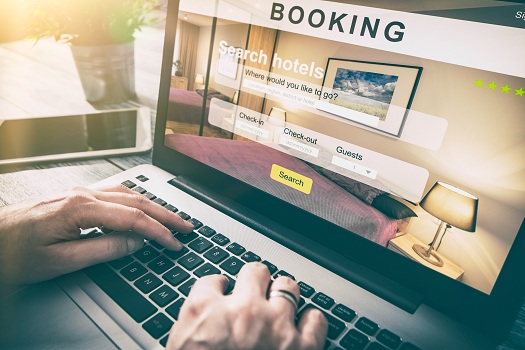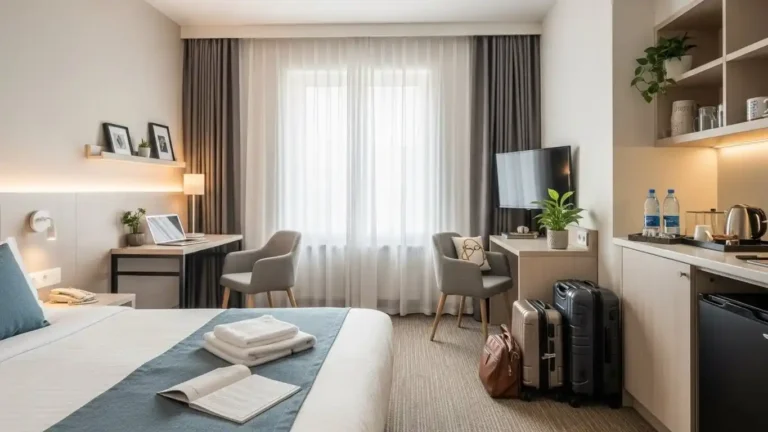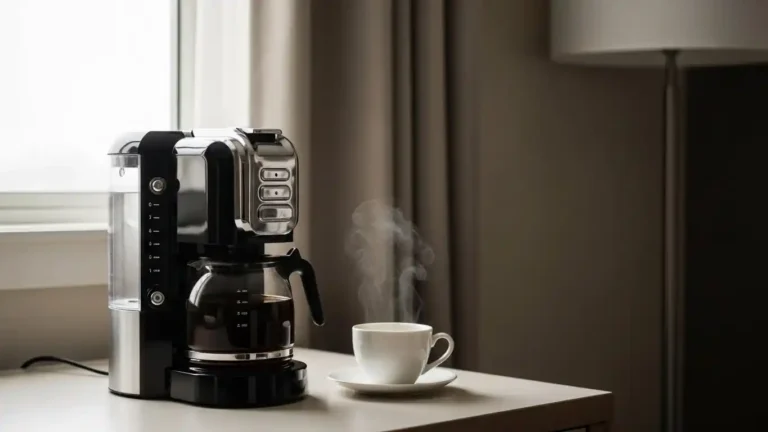Pros And Cons of Hotels Vs Airbnb: Ultimate Comparison Guide
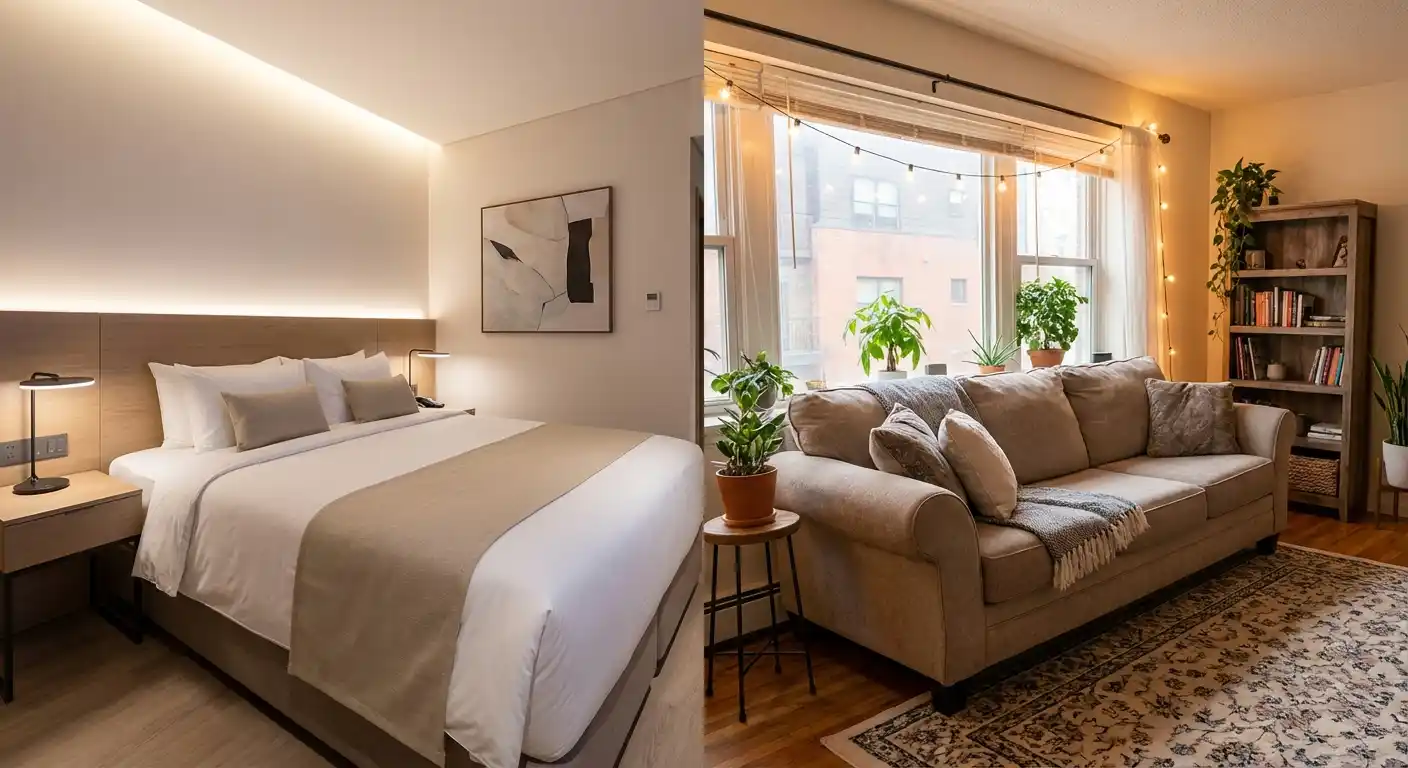
Hotels offer consistent service and amenities, while Airbnb provides unique, personalized stays at often lower prices. Choosing between hotels and Airbnb can be challenging.
Both options have their unique strengths and weaknesses. Hotels usually provide predictable services, housekeeping, and amenities like pools and gyms. They are often located in central areas, making sightseeing convenient.
Airbnb, on the other hand, offers a wide range of accommodations, from entire homes to unique stays like treehouses.
This variety often comes at a lower cost than hotels. However, experiences can vary greatly due to inconsistent service quality.
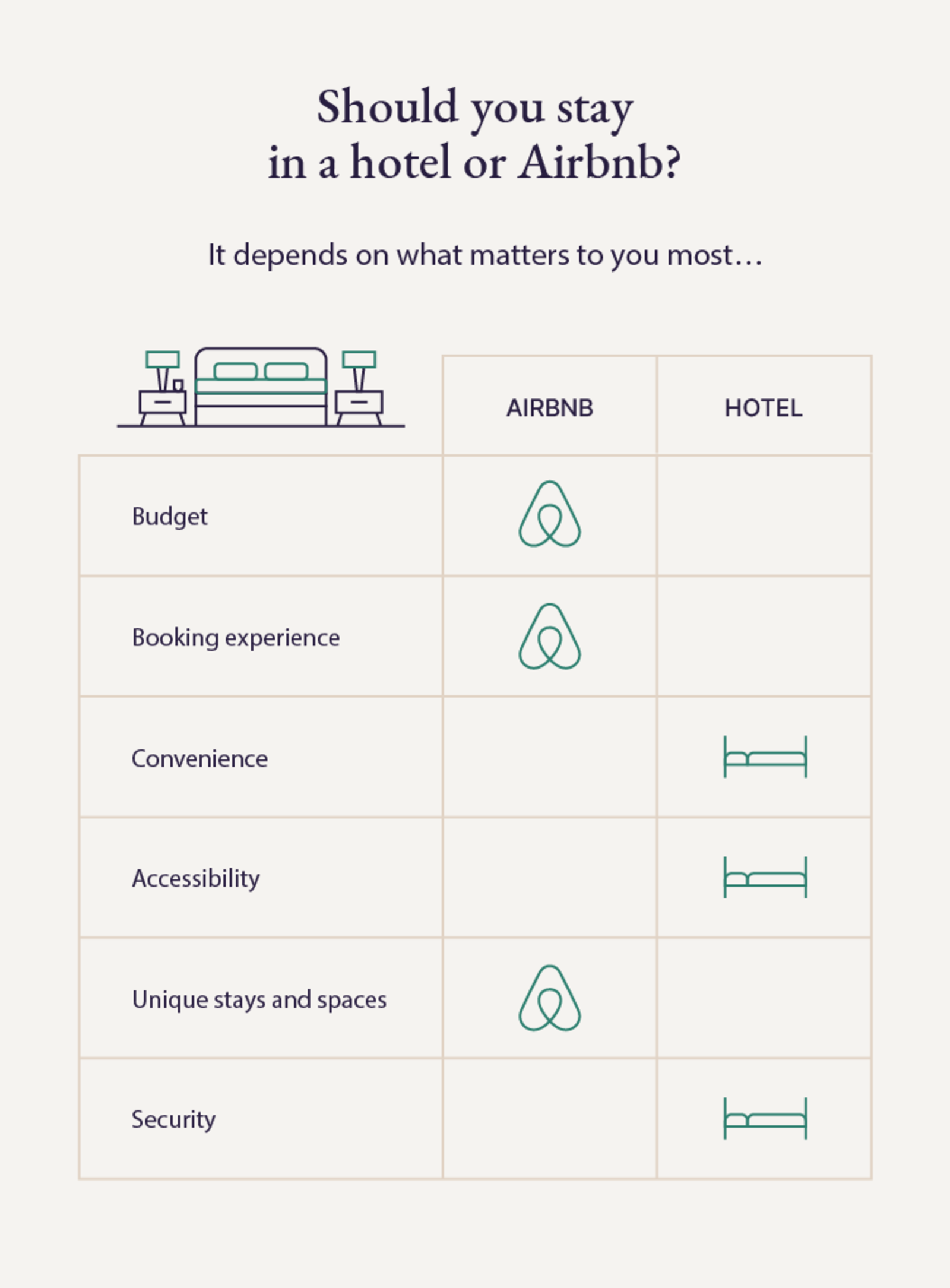
Cost Comparison
Hotels often provide consistent amenities, while Airbnb can offer unique experiences. Hotels usually have higher costs, whereas Airbnb may present more budget-friendly options.
Average Rates
Hotels can be more expensive than Airbnb. Hotel rooms often come with services. These can include daily cleaning and concierge. Airbnb properties can be cheaper. They often have kitchen facilities. This allows guests to cook meals and save money.
Hidden Fees
Hotels may have resort fees. These can add to the cost. Airbnb sometimes has cleaning fees. Always check for extra charges before booking. This can help avoid surprises.
Location Flexibility
Hotels are often found in urban areas. They are close to city centers. This makes travel easier. Airbnb can be found in both urban and rural areas. This offers more choices. You can stay in the city or countryside. Both have their own unique experiences. The choice depends on your preference.
Hotels are usually near major attractions. This is ideal for tourists. You save travel time. Airbnb locations vary. Some are close to attractions. Others might be further away. Always check the location details before booking. This helps in planning your trip better.
Comfort And Amenities
Hotels often have standardized room quality. This means rooms are clean and well-maintained. Guests know what to expect. Airbnb rooms can be hit or miss. Some are amazing, others are not. Reviews help but are not always reliable.
Hotels usually offer many facilities. Expect room service, gyms, and pools. These amenities add to the comfort. Airbnb offers unique facilities. Some have kitchens and backyards. It depends on the host.
Privacy And Security
Hotels often have many guests staying at the same time. Privacy can be limited due to thin walls and shared areas. Airbnbs usually offer more personal space. You can have the entire place to yourself. This means less interaction with strangers.
Hotels have strict safety protocols in place. They often have security cameras, key card access, and 24/7 staff. Airbnb may vary in safety. Some hosts provide secure locks and alarm systems. Always check the host’s ratings and reviews for safety info.
Customer Service
Hotels offer professional, round-the-clock customer service, while Airbnb hosts may provide a more personalized but inconsistent experience. The choice depends on your preference for standardized service or unique, host-driven interactions.
Availability Of Staff
Hotels have staff available 24/7. You can get help at any time. This includes room service, cleaning, and more. Airbnb does not have staff like hotels. You might need to wait for help. Sometimes, the host may not respond quickly.
Support And Assistance
Hotels often have dedicated support for guests. This can include concierge services. They help with bookings and recommendations. Airbnb hosts offer limited support. They might not be professional. Sometimes, you might get better local tips. But, it depends on the host.
Booking Process
Hotels usually have a simple booking process. You visit their website, choose your dates, and book. Airbnb can be a bit more complex. You need to communicate with the host, which can take time. Some people find this extra step inconvenient.
Hotel cancellation policies are often straightforward. You can cancel a day or two before without fees. Airbnb policies vary a lot. Some hosts have strict rules. You might lose your money if you cancel late. Always read the cancellation policy carefully before booking.
Local Experience
Airbnb often offers a better cultural experience. Staying in a local home can help you see the real life of the area. You might get to try local food and customs.
Hotels provide a more uniform experience. They might not offer much local culture. You could miss out on unique local traditions.
Airbnb hosts often interact with their guests. This can lead to new friendships. You can get insider tips on the best places to visit. Hosts might share hidden gems that tourists miss.
Hotel staff are usually professional and formal. They offer good service but may not engage in deep conversations. You might feel more like a tourist than a local.
Final Thoughts
Hotels offer great amenities and services. Expect daily cleaning and room service. But they can be expensive and sometimes impersonal. Airbnb rentals give a homey feel. They often have kitchens and larger spaces. The price can be lower. But you might miss hotel services and security.
Think about your budget and preferences. Families may enjoy Airbnb for more space. Solo travelers might prefer hotels for safety. Location matters too. Some areas have more Airbnbs. Others have better hotels. Both options have pros and cons. Choose what fits your needs best.
Frequently Asked Questions
Which Is Better To Stay, Airbnb Or Hotel?
Airbnb offers unique, home-like experiences and often more space. Hotels provide consistent service, amenities, and convenience. Choose based on your needs.
Why Do People Prefer Airbnb Over Hotels?
People prefer Airbnb for its unique, home-like experiences. Airbnb often offers more space and amenities than hotels. It can be more affordable, especially for longer stays. Locations are diverse, often in residential neighborhoods, giving a local feel. Personal touches and direct host interactions enhance the stay.
What Is The Downside Of Doing Airbnb?
Airbnb hosts face risks like property damage, noise complaints, and fluctuating income. Managing guest expectations can be challenging. Local regulations may restrict short-term rentals.
What Are The Negatives Of Hotels?
Hotels can be expensive, especially during peak seasons. Privacy might be limited. Noise from other guests can be disruptive. Hidden fees can add up quickly. Limited personal kitchen facilities can be inconvenient for long stays.



